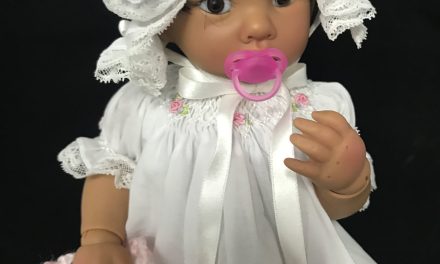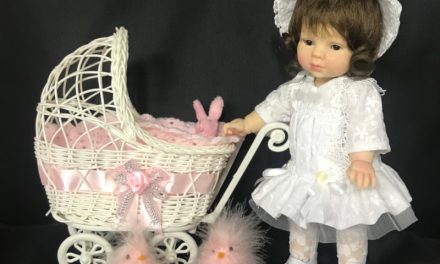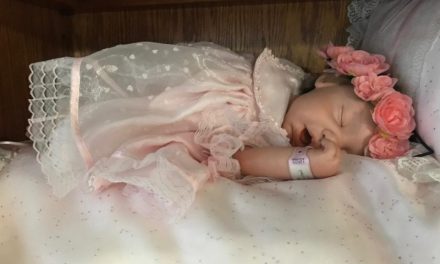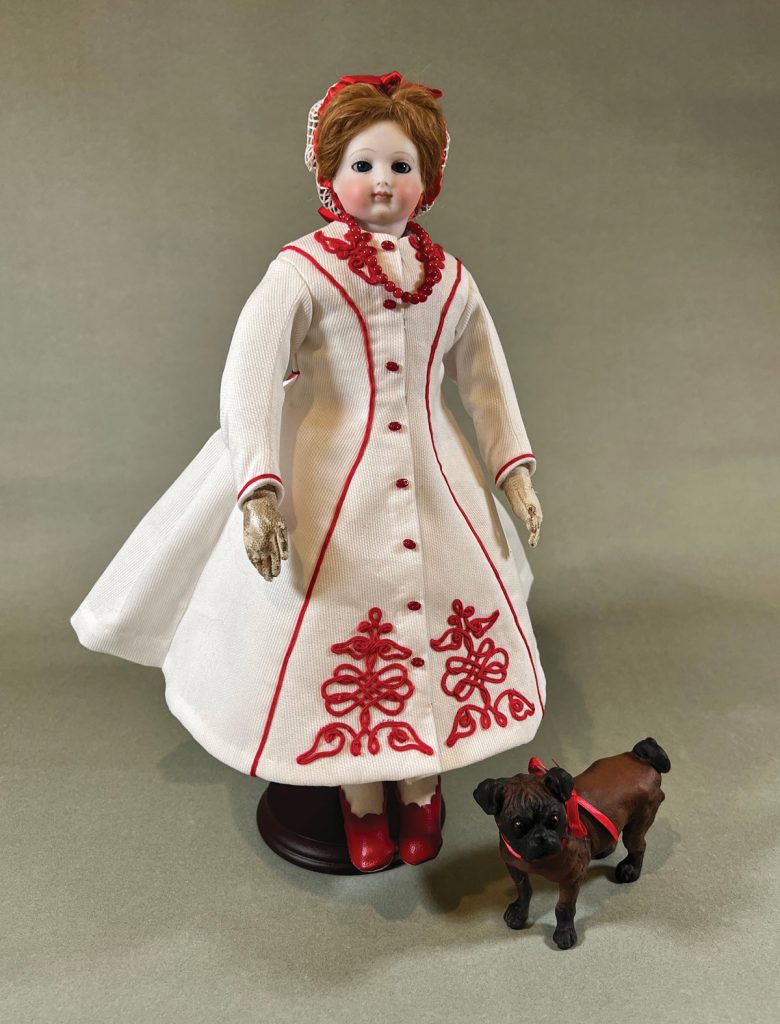
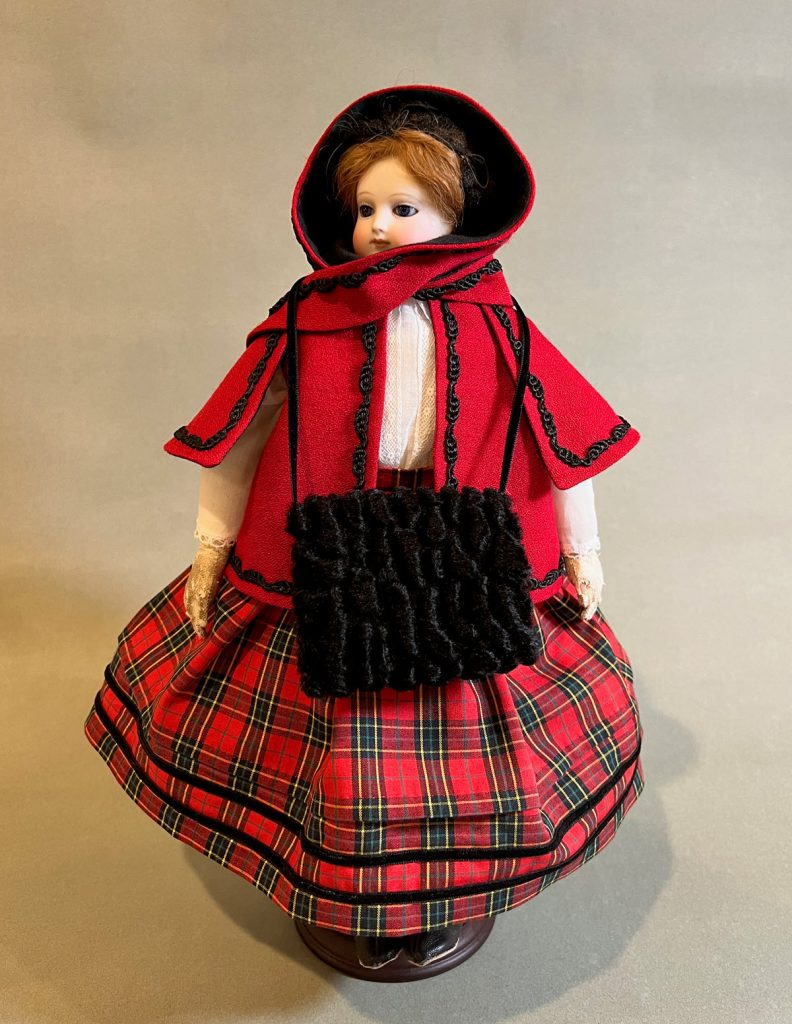
By Karen B. Kurtz
Photos Courtesy of Maison Jeffrey
Snugged within a large home in a suburb outside of Columbus, Ohio, is a peaceful, sunny studio where Jeffrey Cook sews his heart out for clients. The doll couturier behind Maison Jeffrey is a fashion designer who makes and sells miniature clothing tailored to a client’s specific requirements. Couturiers must be creative, have an eye for detail, and work accurately at a high-quality standard. Jeffrey Cook is an ascending star in the field.
Cook’s passion for supple fabrics and beautiful trims began in childhood. At the tender age of 6, his mother passed knowledge she learned from her mother — a professional seamstress — down to him. “I loved searching through my grandmother’s remnant bag and learned to use the sewing machine early on,” Cook said. “Later, I saved my allowance to buy a 16-inch china-head kit after seeing an ad for Mark Farmer reproduction dolls in Yankee magazine. Mom and I put her together. I taught myself how to sew by hand from Mary H. Morgan’s book How to Dress an Old-Fashioned Doll (Dover Publications, 1973).”
Immersed in Fashion
Cook worked as an intern at the Costume Institute of the Metropolitan Museum of Art in New York City during high school. It was familiar territory, because he and his parents often went there to see the costume exhibits created by the legendary Diana Vreeland (1903-1989). Vreeland’s reputation at Vogue and Harper’s Bazaar was a dominant force in the mid-20th-century fashion industry. According to a 1962 article in the New York Times, she “shaped the looks of thousands of women.”
And Cook absorbed everything. “It was the first time I saw 18th- and 19th-century costumes. I was fascinated by those historical garments — the cut, silhouette, people who made and wore them,” he said. “I had access to the entire collection — to see inside the gowns that French designers The House of Worth and Emile Pingat manufactured was mind blowing. I made small dress forms and costumed them in historic fashions from the 1860s to the 1880s. My favorite period was the early 1870s, which led to a love and appreciation of French fashion dolls.”
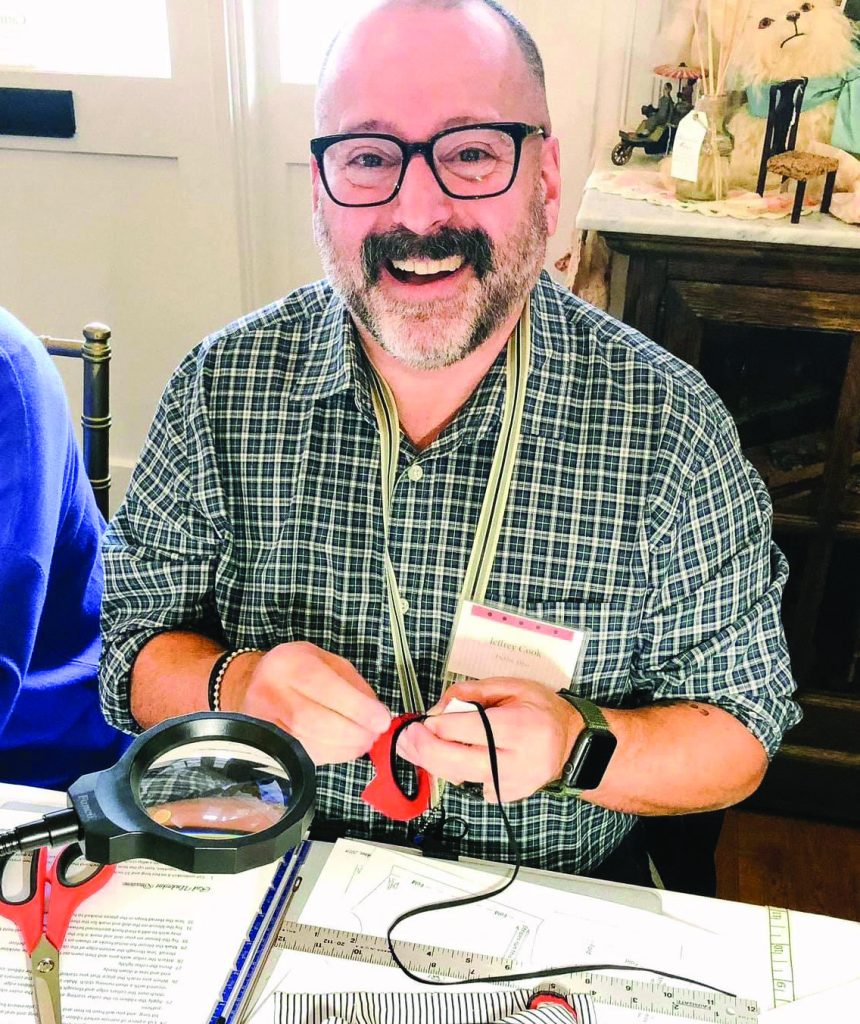
Cook is a full-time account manager for a global design firm today. “Working from home is challenging and often stressful,” he said. “The majority of my days are spent on video conference calls, with breaks for lunch and the gym, if I can manage it.”
In his former 1,000-square-foot, one-bedroom Brooklyn apartment, Cook’s workspace was the dining-room table. “I had to constantly clear away projects before eating,” he said. “Fabrics and trims were stashed tightly in two small plastic bins in the bedroom closet.”
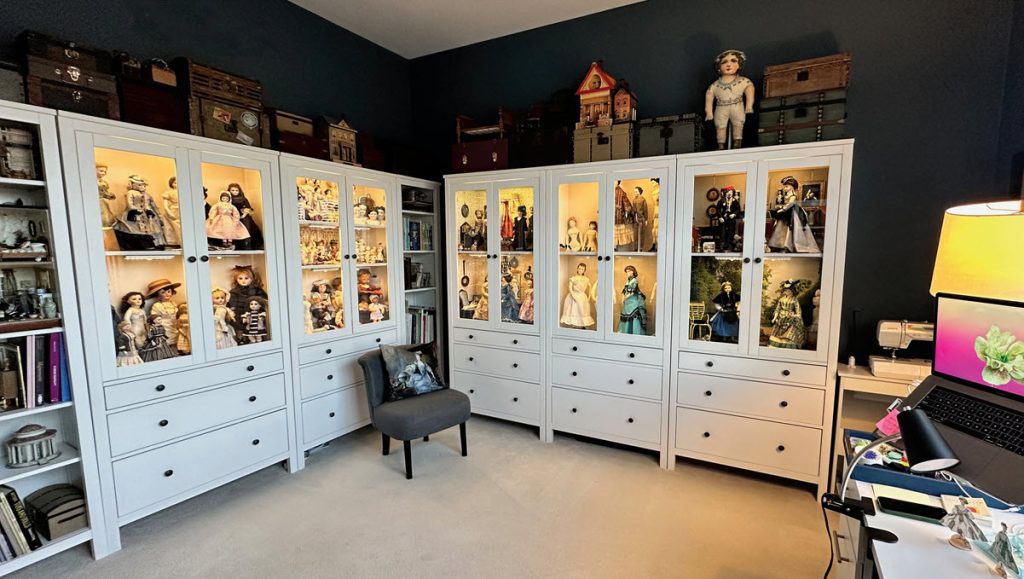
Finding the Perfect Workspace
The rest of this article can be seen only by paid members who are logged in.Have a website login already? Log in and start reading now.
Never created a website login before? Find your Customer Number (it’s on your mailing label) and register here.
JOIN HERE
Still have questions? Contact us here.

